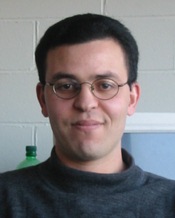Smart Data Integration of Environmental Datasets
Dr. José Ramón Ríos Viqueira Univ. of Santiago de Compostela CITUS Research Center
Abstract
The amount of data generated by Earth Observation Systems is in general huge compared with the capacities of the data management and processing technologies. Currently, complex data acquisition infrastructures maintained by public administrations are complemented with initiatives based on the collaboration of citizens at large scale (mobile crowdsensing, social media, etc.). Apart from their volume, main characteristics of the generated data are their heterogeneity and the lack of appropriate metadata. Those characteristics hinder data integration processes, data reuse in applications with non-expert users and the development of general-purpose components that might be reused in many domains. In this talk, we will: i) introduce uses cases with environmental data sources that arise in the scope of different projects, ii) briefly review solutions related to the management of the geospatial and temporal dimensions, and to the semantics commonly present in environmental datasets, iii) describe solutions and future plans related to the integration of environmental datasets, both in mediation and data warehouse architectures and iv) outline future research directions related to the searching and interactive exploration of very large integrated and smart environmental datasets.
Bio
José R.R. Viqueira is Associate Professor at the Department of Electronics and Computer Science of the USC. Besides, he is founding member of the COGRADE (Computer Graphics and Data Engineering) research group of the USC and he is member of the research staff of the Centro Singular de Investigación en Tecnoloxías Intelixentes (CITIUS). His current research lines are related to the management of very large scientific data sets, with special emphasis on spatio-temporal and sensor data. He obtained a master (1998) and a PhD (2003) in Computer Science at the University of A Coruña. Since 1998 has been involved in research works related to spatial and spatio-temporal data management, with special relevance in GIS applications and also in sensor data management. He is author of many research papers in journals and conferences related to data management and geosciences. He has participated and leaded competitive research projects of regional, national, and international scope and he participated and leaded technology transfer activities with both companies and public administration, including the creation of a Spin-off that is active since 2003.

